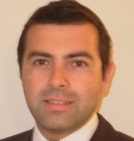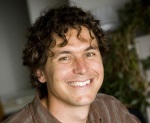Links to external sources may no longer work as intended. The content may not represent the latest thinking in this area or the Society’s current position on the topic.
Nanostructured carbon membranes for breakthrough filtration applications: advancing the science, engineering and design
Theo Murphy scientific meeting organised by Dr Davide Mattia, Professor Jason Reese FREng FRSE, Dr Duncan Lockerby, Professor David Emerson and Dr Ben Corry
Event details
Nanotube membranes offer outstanding potential for efficient desalination and wastewater treatment that can help address the world’s water scarcity problems. This meeting will map the issues that still need to be resolved and bring together the key people who, working together, will realise this potential. Topics range from fundamental understanding of the nanofluidics, to design and manufacture of actual membranes.
Attending this event
This is a residential conference, which allows for increased discussion and networking. It is free to attend, however participants need to cover their accommodation and catering costs if required.
Enquiries: Contact the events team





